Meet the candidates: Wilmington City Council
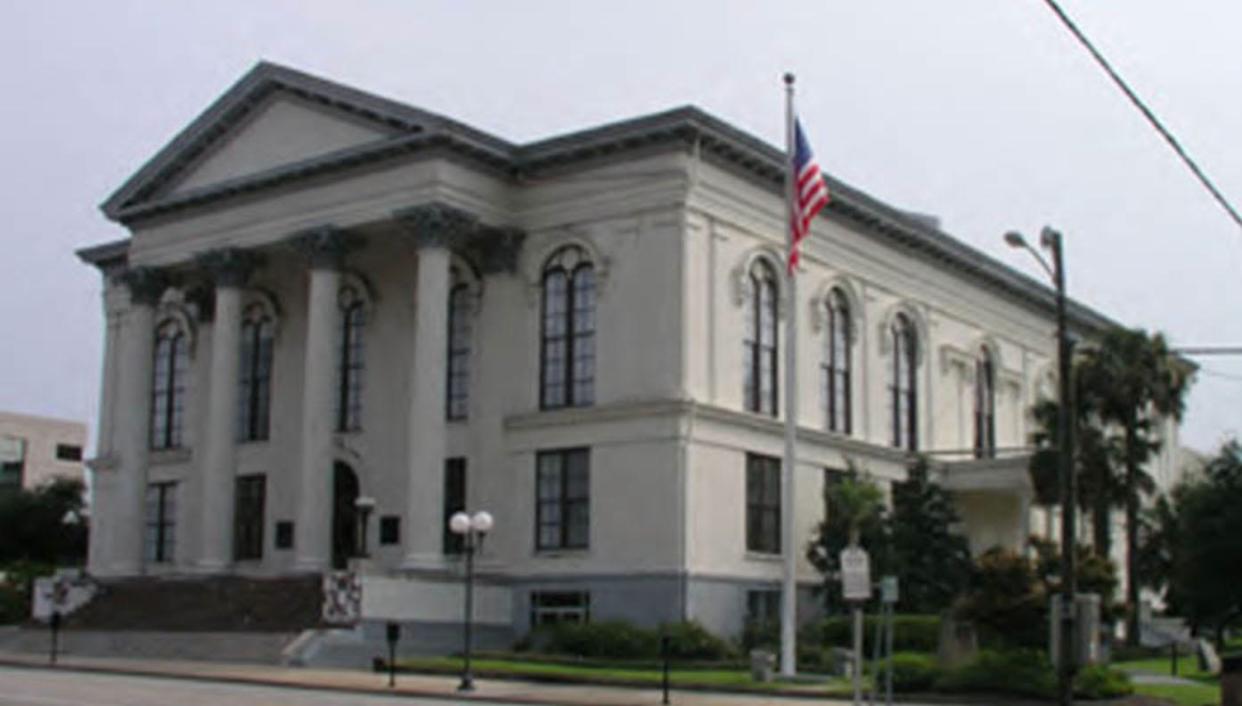
Seven candidates are running for three open seats on the Wilmington City Council.
The slate includes four Democrats and three Republicans, two incumbents and five challengers.
Council members Neil Anderson and Kevin Spears, whose terms are expiring, are running for re-election. Mayor Pro-Tem Margaret Haynes has decided against seeking a fourth four-year term, leaving her seat open.
Voters in Wilmington have three options to cast a vote in the 2023 election. Residents can vote before Election Day by mailing in an absentee ballot. Or they can cast their vote during the "one-stop" or early voting period, which begins Oct. 19 and ends Nov. 3. Same-day registration is available at early-voting sites.
Voters can also cast their ballots on Election Day, which is Nov. 7.
A photo ID is required for voting this year. Voters can show their driver's license, but other types of ID are accepted.
Voters without a photo ID can get a "No Fee ID Card" from the North Carolina Department of Motor Vehicles. Voters can also get a free voter ID card from the county board of elections office. Call 910-798-7330 for more information.
Candidate responses to questions are below. They have been edited for style, grammar and length.
Neil Anderson

Age: 56
Occupation: Self-employed, Hook Sales, LLC, territory manager in the furniture industry
Family: Married 27 years to wife Jarrett, three children ages 15, 22, 24
Education: Bachelor of Arts in History, UNC-Chapel Hill; M.B.A., Queens College, Charlotte
Political affiliation: Republican
Salette Andrews
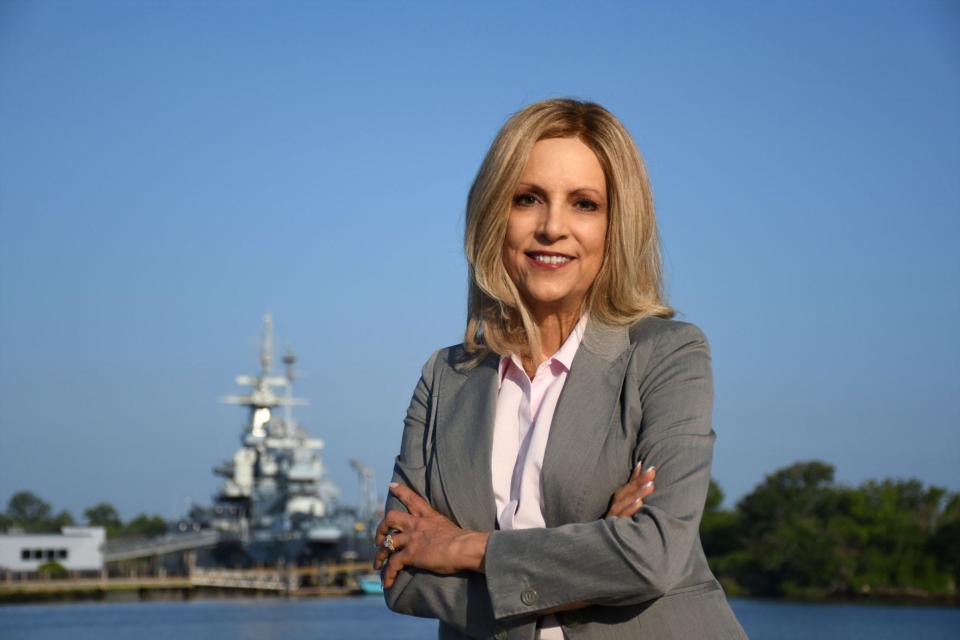
Age: 64
Occupation: Small business owner (estate jewelry)
Family: Husband, David; three grown children; three young grandchildren; two rescued dogs
Education: Master of Science, Mercer University School of Engineering
Political affiliation: Democrat
Kathryn Bruner
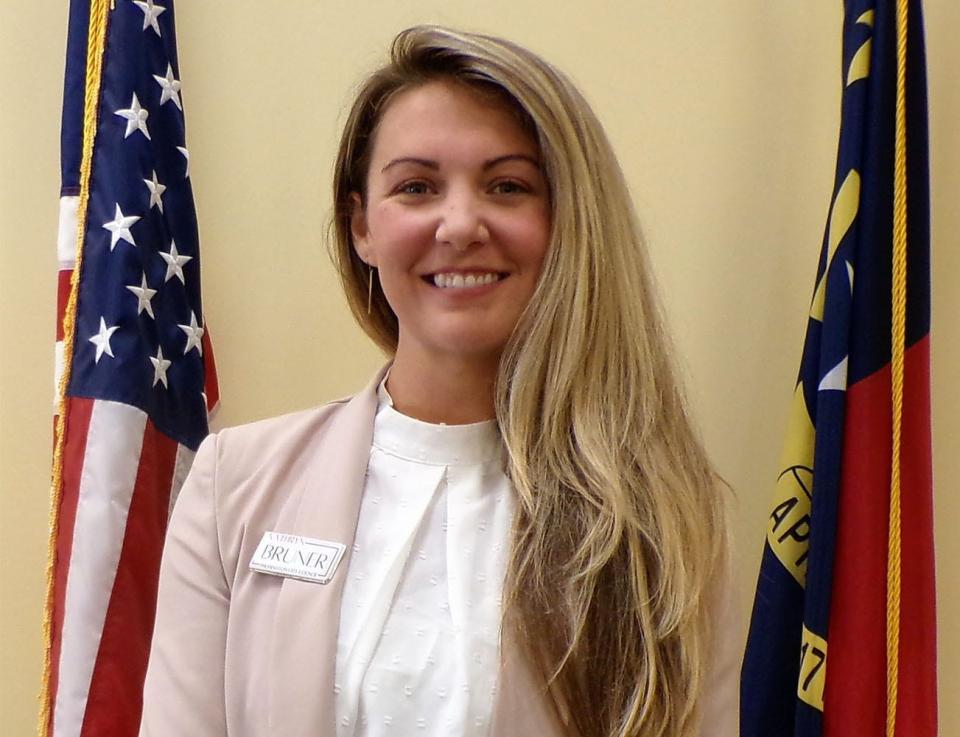
Age: 33
Occupation: U.S. Coast Guard veteran and small business owner of a boutique real estate company in Wilmington.
Family: Mother, Staci; father, Michael; sister, Marceea
Education: 8.5 years of military, state and federal training. Started two small companies, and used entrepreneurialexperience to train other veterans while working with nonprofit organization Bunker Labs.
Political affiliation: Republican
Marlowe Foster
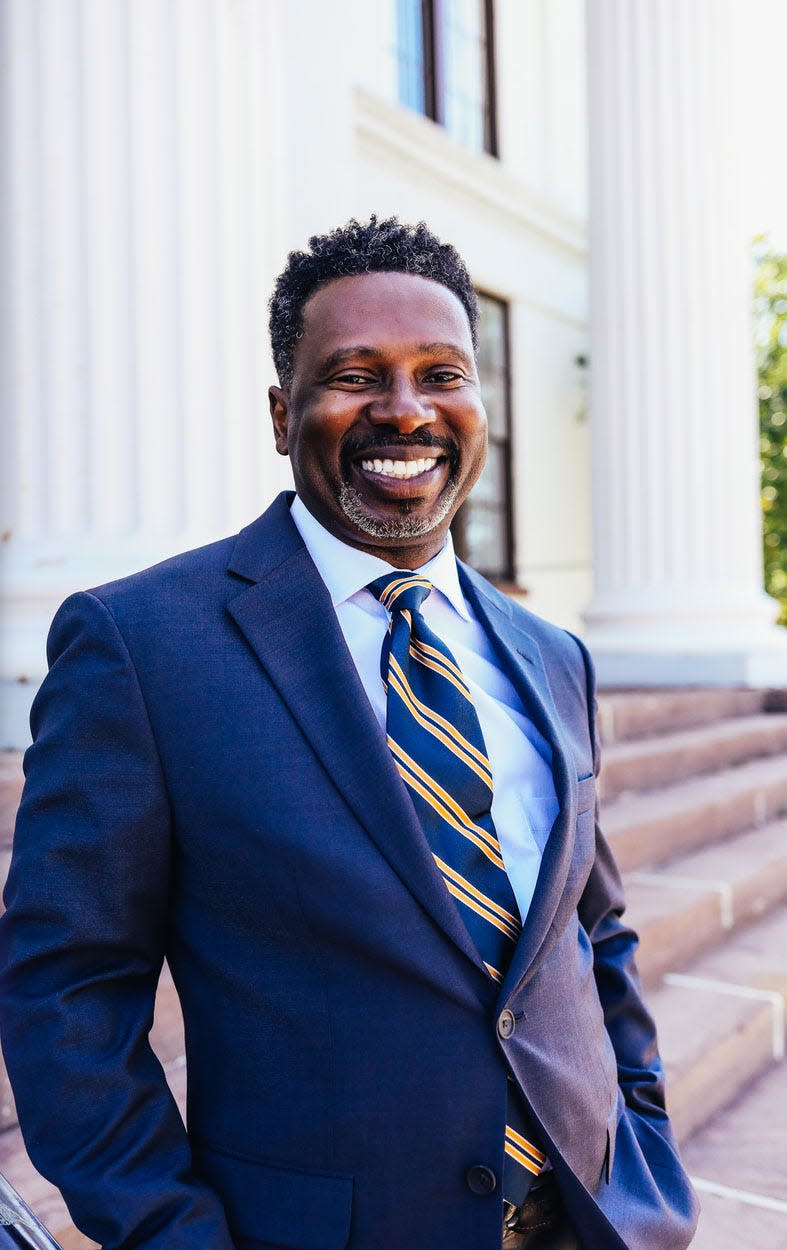
Age: 51
Occupation: Most recently senior vice president of development at the Food Bank of Central & Eastern NC. Currently, caregiver for parents.
Family: Wife, son and daughter
Education: Bachelor of Arts and MPA from Virginia Commonwealth University
Political affiliation: Democrat
David Joyner
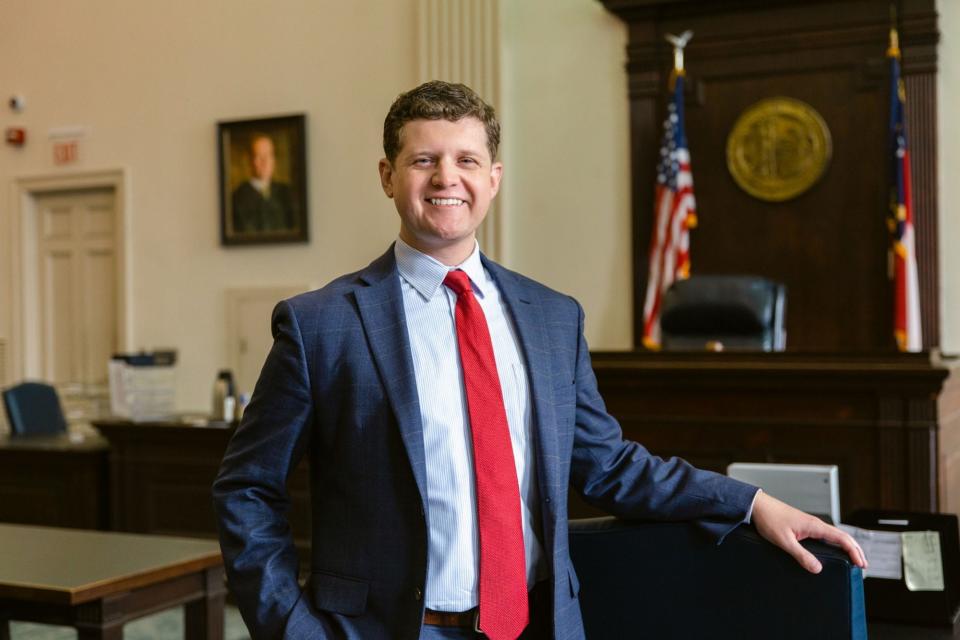
Age: 29
Occupation: Assistant District Attorney.
Family: Son of retired public-school teachers Bill and Angie Joyner. Unmarried.
Education: Graduated from UNC-Chapel Hill in 2016. Graduated from Campbell Law School in 2019.
Political affiliation: Democrat
John D. Lennon
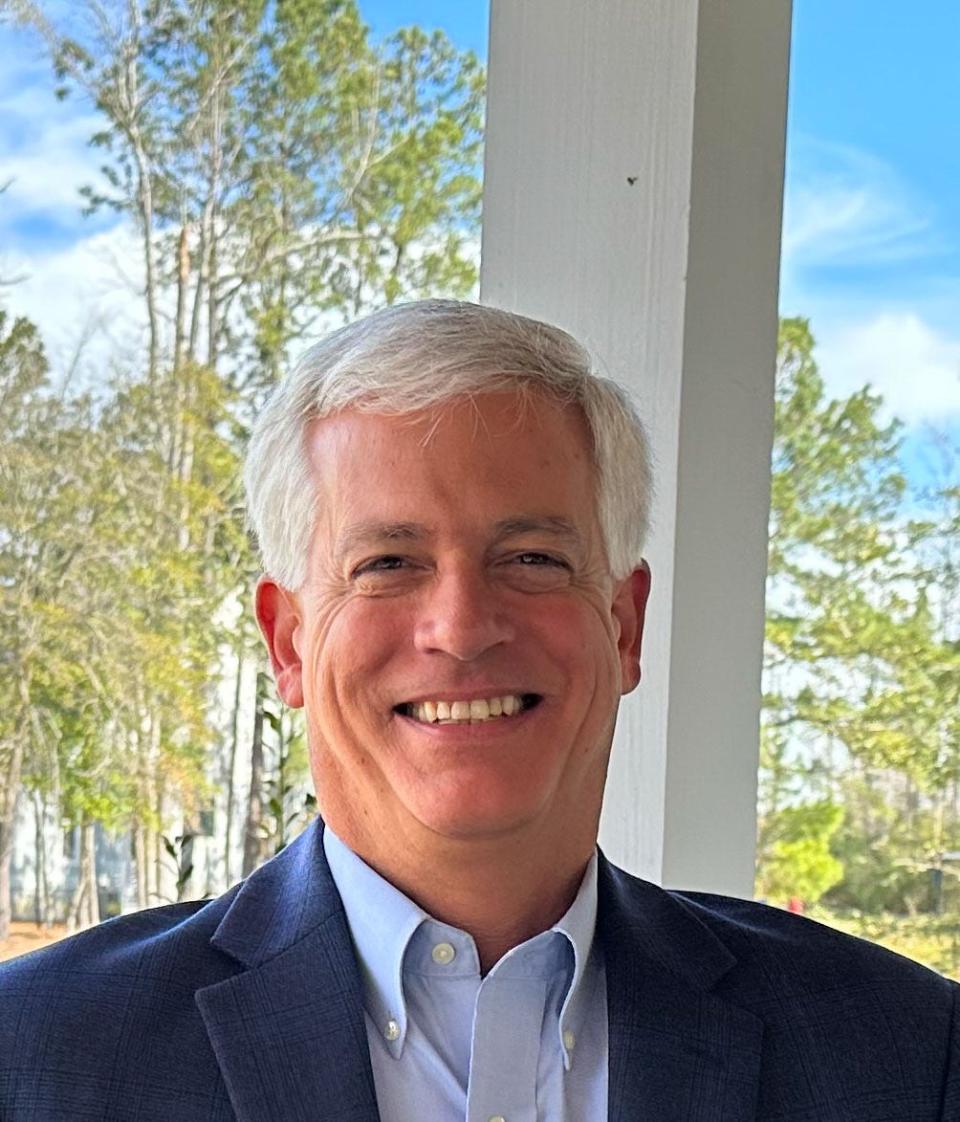
Age: 57
Occupation: Director of operations at River Bluffs Development Corporation
Family: Married to Beth, a Wilmington native, for 32 years. Three children: Preston, Avery and Whitley. My mother has lived in Wilmington for almost 25 years and both of my sisters and their respective families are here as well.
Education: Bachelor of Political Science at NCSU
Political affiliation: Republican
Kevin Spears
Age: 46
Occupation: IT professional and elected official
Family: Three children, two grandchildren, but a lot of family.
Education: AAS in Computer Engineering Technology, BS in Information Technology and a minor in Africana Studies
Political affiliation: Democrat
What is the one most important issue currently facing the city of Wilmington?
Anderson: Handling our success and managing sustained growth will continue to be our greatest challenge. Thankfully, NCDOT has finally recognized our needs in terms of traffic and will complete seven overpasses in the next 10 years, creating continuous-flow intersections at many over our worst stoplights. The city will finally complete all the projects in our last transportation and parks bond in the next two years. We will need to survey our current needs in the city and likely offer a new transportation bond referendum very soon. Roads like Independence Boulevard between River and Carolina Beach roads desperately need attention.
Andrews: Infrastructure is the most important issue facing the city of Wilmington, particularly traffic, which was the number one concern cited in the 2021 citizen survey. Roads, bridges and utilities are straining under population growth, affecting daily life and economic development. Flooding exacerbates these problems, making climate resilience a priority. The Cape Fear Public Utility Authority needs to keep up with emerging health threats. Infrastructure investment is essential for Wilmington to thrive, attract economic prosperity, ensure public safety and promote sustainable growth.
Bruner: The residents of Wilmington are what is most important in Wilmington! We want to feel safe: walking to our vehicle downtown, putting children on a school bus, or even starting a local business. Feeling safe, having the freedom and opportunity to put food on the table, the security to affordably live in the town that you love, and faith in knowing that your community is protected by a strong local government. Nothing can be achieved without first creating a strong foundation of leadership to stand up for the rights and needs of our residents.
Foster: Housing affordability is the most critical issue facing the City of Wilmington. With median home prices at $400,000+, it is incredibly difficult to become a homeowner. We have city employees that must drive over the bridge to a neighboring county just to be able to afford a house. Putting home ownership back in reach for the everyday citizen of Wilmington will be my top priority.
Joyner: Public safety. I am an assistant district attorney appointed by DA Ben David. I am the only candidate working full-time in public safety. In 2023 alone I have successfully prosecuted 54 criminal cases involving firearms, petitioning the court to destroy the unlawfully used gun or permanently surrender it to authorities — all with laws already in place. My caseload also covers violence against women and impaired driving. It is my honor to be the founding prosecutor of our Veterans Treatment Court, getting justice-involved veterans into addiction counseling, housing and employment as they serve probationary sentences for substance-use related convictions.
Lennon: Affordable housing. I see this situation as primarily a problem of supply and demand. We need to understand here in Wilmington that our city is on the map. People are moving here, they’ll continue to move here, and we’re surely not going to tell them to move elsewhere. So I think we need to understand that we can either tax our way out of this problem or grow our way out of it, and I choose the latter. Continuing to provide more housing options will make living more affordable for all residents.
Spears: The livelihood of its citizens. The city only goes as far as we take it. We should be competing to be the best city in this state and maybe the nation and we need to do it by doing more than bragging about beaches and river walks.
Do you agree with the city’s decision to purchase the former PPD building and sell most other city buildings? Why or why not?
Anderson: Yes. It presented an incredible bargain for our taxpayers and offered a great long-term solution for the city. (A) Build a new city hall for $100 million, lease space for two years during construction, fully furnish a new building, and build a $30 million parking deck on the north end of town by increasing the tax rate by 3 or 4 cents. OR (B) Buy a modern building worth more than $120 million for $68 million, fully furnished with floors you can lease to pay the operating expenses, that comes with a parking deck and no tax increase. I choose option B.
Andrews: Yes. The city council unanimously approved $70 million in financing to purchase the PPD building, which had an appraised value of $130 million. The alternative was to replace 305 Chestnut for $96 million. The new building will consolidate operations into a single, efficient location, reducing costs associated with maintaining multiple buildings and streamlining services. It also offers the amenities and space to accommodate future growth and technology needs. Selling surplus properties and renting the unused office space will generate revenue to offset the cost of the building. Overall, this purchase optimizes city operations, service delivery and long-term fiscal sustainability.
Bruner: Our current city council has repeatedly shared with the community that this purchase is a "great deal." We need to hold them to that promise and make it true, starting with renting out the top floors to a tenant, not government officials.
Foster: When looking at all the options, the purchase of the former PPD building to consolidate city services made the most fiscal sense. It is now incumbent upon the city to sell most other city buildings and lease unused space in the former PPD building to the benefit of tax paying citizens.
Joyner: I support centralizing city government space to better serve Wilmingtonians. Current councilors promote the acquisition as a once-in-a-lifetime deal, but have yet to sign a lease agreement with any tenant other than Thermo Fisher. I question the wisdom of purchasing such a large space with no tenants ready to lease, nor expected buyers for the sale of property the city currently occupies. If we voted today, I would vote for the city to occupy the lowest floors. I remain open to seeing the final figures for retrofitting lower floors compared to leases for higher floors.
Lennon: I’m not sure if it was smart for Wilmington to purchase the Thermo Fisher building. I take issue with the lack of information that was provided to city residents during the few summer months in which the building’s purchase was discussed. The former city HQ, the Chestnut Street building, after all these years of serving as a focal point of city government, was all of a sudden in need of a $96 million rebuild? So we could save many millions by purchasing the PPD building? I want to make sure this transaction doesn’t become a deferred tax increase for our residents.
Spears: Yes, I do. It was a smart and savvy decision that prevented us from having to build something new or having to add to 305 Chestnut St. The selling of the surplus properties helps to cover a portion of the cost from the purchase of the PPD building.
Do you think the city’s contract with Live Nation Entertainment to manage Greenfield Lake Amphitheater and Live Oak Bank Pavilion has been beneficial for residents of Wilmington? Why or why not?
Anderson: Without a doubt. GFLA is a local treasure and has not lost its charm in the transition. Live Oak Pavilion is a huge asset offering a level of entertainment not available to most cities our size. It draws a high percentage of patrons from outside the area resulting in high hotel occupancy rates downtown, which helps local businesses and generates room occupancy tax to help keep our property tax rate stable. Ticket prices are too high, but that is from pent up demand after the pandemic and from ticket resellers using bots to make huge profits, not because of LN or the artists.
Andrews: The city's contract with Live Nation has generally been beneficial for residents. Live Nation's expertise and resources have brought a diverse range of entertainment to the city, which has improved both the cultural and economic vitality of downtown. However, some residents have expressed concerns about ticket prices. In addition, the price and occupancy rate of downtown hotel rooms has increased to the point that it is difficult for organizations to host conferences at the Wilmington Convention Center. Overall, the partnership has positively affected the local arts and entertainment scene but requires ongoing community engagement and oversight to balance residents' interests.
Bruner: Having incredible amenities in our community that drive tourism can help boost our economy. If appropriately managed, venues like these can bring in outside revenue to help us keep our local taxes low. While I agree with the contract amendments to increase the annual event allotment (at Live Oak, for Live Nation) from 20 to 30, I disagree with the spending of $14,000 worth of tax dollars to procure VIP box seating that had minimal ticket sales.
Foster: The amphitheater and the pavilion have become great draws for concerts and events in the city. I believe it is important for a top tier city to provide a variety of entertainment options for its citizens. The overall excitement about these venues is demonstrated through their high usage and oftentimes being sold out for the events being staged.
Joyner: Yes. Performances at these venues are generating in excess of $425,000 for the city annually and drive hotel bookings, increasing tourism tax revenue through our room occupancy tax. We are surprising everyone by competing for, and booking, the same quality of artists as cities like Charleston, Raleigh and Richmond. To maximize the value of these venues we must problem-solve for our parking, transit and sanitation needs around these sites. I would also like to see us diversify the genres of performances offered and to open these venues to local, up-and-coming artists, especially Greenfield Lake Amphitheater.
Lennon: I think the new amphitheater will prove to be beneficial for all the residents of Wilmington. It’s a venue that can bring in top talent of all stripes, and a centerpiece to future development in northern downtown. Whoever is managing these city assets needs to make sure that the variety of entertainment is reflective of our city and that pricing for such events does not exclude people who live here.
Spears: No. If you recall, I was against Live Oak managing both amphitheaters. Live Oak has done a great job at the pavilion as far as shows but there needs to be some diversity in the acts being booked. The Hugh Morton (Greenfield Lake) Amphitheater has always been more of a place for local acts and local promoters. There was a disruption of longstanding traditions there.
Given the amount of growth in Wilmington, do you think it is being managed well? Why or why not?
Anderson: Our successes outpace our shortcomings. Our quality of life is the envy of our state and ranks well in the Southeast. Has Wilmington changed in the last 20 years? It sure has, but our citizens are not moving away, and people are bending over backwards to move here, so we can’t be handling it too poorly. The NCDOT is reactionary versus a forward-looking organization, but help is on the way. Unemployment is at record lows, yet housing costs remains too high. We do need to use conditional zoning to make sure that infill does not adversely impact the character of established neighborhoods.
Andrews: Wilmington has been a victim of its own success. Our beautiful coastal environment, mild climate, outdoor activities and entertainment options have attracted new businesses and residents, bolstered the local economy, and created job opportunities. However, the rapid growth has strained infrastructure, resulting in traffic congestion, housing affordability challenges and environmental concerns like increased flooding and loss of green space. Managing this growth requires comprehensive planning, sustainable development strategies and infrastructure investments. While the city has done a good job managing these efforts, we need to balance economic growth with the preservation of Wilmington's unique coastal environment and quality of life.
Bruner: There needs to be more continuity between projects. NCDOTs infrastructure is not keeping up with the level of development being approved. Developers may make small road improvements but it is not their responsibility to manage the flow of traffic in our city. They build houses, not roads. When multiple traffic studies are conducted the city council should analyze the impact on our entire community, not just the entrance to each development.
Foster: Wilmington is a destination city and we will continue to see growth. What is critical is that we grow in a smart way. From my perspective we must grow vertically, protect our tree canopy, and ensure new developments are mixed use. We also must ensure that new developments include an affordability component as we continue to work on housing affordability in the city.
Joyner: No. We are in the midst of a housing affordability crisis; we commute on overcrowded, unsafe roads and crumbling bridges; each time we blink trees and wetlands are being destroyed. At DavidForWilmington.com I’ve laid out my commitment to a strategy for growth that promotes density and builds higher to avoid urban sprawl. I believe passenger rail and light rail are the future of our transportation infrastructure and am committed to making Wilmington walkable and bikeable. We must protect our waterways and harness wind and solar power as well as kinetic and thermal energy from the Intracoastal Waterway.
Lennon: We’ve got two options on how to move forward as a collective city. People are moving here from all around the country. We can put barriers in place for them, make it harder for them to find a home, and each of us pays more in taxes to sustain what we’ve got. Or we can embrace the fact that we’re a growing city, we can welcome new residents, new businesses and new opportunities. I choose the latter. That said, one of my top priorities is tackling the overdue transportation bond projects that will improve traffic conditions and walkability for all residents.
Spears: I think there is always room for improvement. It's a pretty fine line to doing something well that will appease everyone. On one hand we have too much development and growth. On the other hand we have a housing shortage, a homelessness issue and an affordable housing crisis. I don't know how we solve all of the issues and still save natural habitats for animals while saving trees.
Who is your favorite figure from the annals of Wilmington history, and why?
Anderson: I choose a group of figures that represent the communal pride of Wilmington. In 1960, the Atlantic Coastline Railroad, our city’s largest employer at the time, left town. The future looked dim, but city leaders got busy reversing the tide. James Craig and Hugh Morton brought the USS North Carolina to town. Dan Cameron, former mayor, established the Committee of 100, luring numerous employers to Wilmington. After two referendums, New Hanover Regional Hospital was built. Lobbying efforts in Raleigh brought UNCW up to a four-year college. These initiatives by dedicated, visionary citizens built the foundation for the success Wilmington is experiencing today.
Andrews: Hannah Block, the first woman elected to Wilmington City Council in 1961, was dedicated to the arts and community engagement. She was a driving force behind Thalian Hall and played a pivotal role in preserving and revitalizing our most important cultural institution. Her advocacy for the arts fostered creativity and education, and her commitment to civil rights and social justice promoted inclusivity, making Wilmington a more diverse and progressive city. Hannah Block's legacy of arts and activism has enhanced Wilmington's character and spirit.
Bruner: Michael Jordan, because he is a relentless leader. MJ blazed his own trail, he never wanted to be like anyone else. He believes that leadership has a price, and he did not just strive to be the best for himself, he reached back and pulled his teammates up with him.
Foster: Michael Jordan. I will always admire his tenacity, his will to win and commitment to his craft. With the significant challenges facing the city of Wilmington, I want to bring that same level of tenacity and commitment to the office of Wilmington City Council.
Joyner: As the son of two retired public school teachers and as a product of North Carolina public education from my first day of kindergarten to the day I graduated college, I am inspired by the life and legacy of Mary Washington Howe (1852-1900). She was a lifelong learner, a scholar and the first Black woman to lead a school in Wilmington. She became principal of Williston Grammar School in her 20s and served in that role for twenty-two years. She is an example of someone called to service, lifting others through her own opportunities and God-given talents.
Lennon: There are many people I admire who pushed our city forward: in civil rights, our economy, the preservation of green space and rejuvenation of our downtown But, on a personal level, I say Sonny Jurgensen, Washington Redskins quarterback from 1964 to 1974. I grew up in Washington, D.C., watching him play. Little did I know that he grew up in Carolina Place here in Wilmington, practicing how to throw a football with his next door neighbor, my future mother-in-law.
Spears: Good question. There are so many great people that come from Wilmington or that have contributed not only to Wilmington's rich but complex history, but also the history of the nation and in some instances the world. My favorite figures are the figures who have not given up on helping to positively change the culture in Wilmington.
This article originally appeared on Wilmington StarNews: Candidates for Wilmington City Council in 2023 November election

